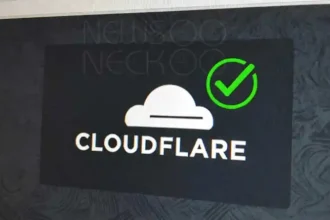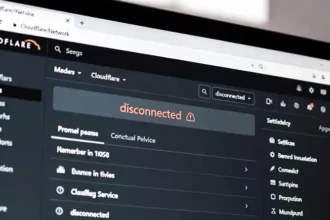The $1.4 Trillion Stumble: Inside OpenAI’s 48-Hour Crisis Over a ‘Bailout’ Request
It was a comment that sent shockwaves through Silicon Valley and Washington, D.C., and sent one of the world’s most powerful AI companies into a full-blown public relations panic.
For 48 hours this week, OpenAI, the creator of ChatGPT, was not talking about a new, smarter AI model. Instead, its top executives were scrambling to explain a single word: “backstop.”
The crisis started with a suggestion that the U.S. government should help guarantee the company’s massive, trillion-dollar bets on its future. It ended with the CEO making a stark declaration: “If we screw up.. we should fail.”
Here’s how a financial comment turned into a public relations firestorm for the company leading the AI revolution.
The Comment That Started It All
The trouble began at a Wall Street Journal event on Wednesday. OpenAI’s Chief Financial Officer, Sarah Friar, a respected leader hired to steer the company’s finances, was discussing the enormous cost of building AI.
She suggested that for the private sector to make the huge investments needed—like the $1.4 trillion in chips and data centers OpenAI is committed to—the U.S. government should “backstop” the debt.
Think of a “backstop” like a co-signer for a loan. If you can’t pay your rent, the co-signer is on the hook. Friar was suggesting, in essence, that American taxpayers could be the co-signer for OpenAI’s historic spending.
The reaction was immediate and fierce.
Why a ‘Backstop’ Caused a Meltdown
The idea did not sit well with many experts and observers. OpenAI is a private company valued at an incredible $500 billion. Its investors stand to make enormous profits if it succeeds. So, why should the public carry the risk?
Mike O’Rourke, a chief market strategist, captured the mood with a series of sharp questions. “Will there be a political movement to forgive AI chip loans like student loans?” he wrote. He called the idea “absurd” that OpenAI could grow the value of its private shares “on the backs of American taxpayers.”
The comment also raised a more worrying question for investors: Did OpenAI know how it was going to pay for all this? The company is not yet consistently profitable, and $1.4 trillion is an almost unimaginable sum. It’s more than the entire economic output of many countries. Friar’s words hinted that the company’s ambitions might be bigger than its wallet.
You Might Like it: Nvidia Boss Says China Will Win AI Race, Then Quickly Changes His Tune in Damage Control Scramble
Damage Control Mode
By Thursday, the company was in full damage-control mode.
First, Friar tried to clean up the mess herself. On the professional network LinkedIn, she wrote that OpenAI was “not seeking a government backstop.” She said she was talking about a broader need for public and private partnership, not a bailout for her company.
But the confusion only grew. So, the boss stepped in.
OpenAI CEO Sam Altman, one of the most recognizable faces in tech, took to his X account to draw a clear line. He stated firmly that the company “does not have or want government guarantees for OpenAI datacenters.”
He then made a statement that was as much about philosophy as it was about finance. “We believe that governments should not pick winners and losers, and that taxpayers should not bail out companies that make bad business decisions,” Altman wrote.
His message was pure capitalism: “If we screw up and can’t fix it, we should fail, and other companies will continue on… That’s how capitalism works.”
Also Read: The AI Darling Stumbles: Super Micro’s Shock Earnings Miss Sends Stock Reeling
The Political Problem
The timing of the comment was especially awkward. The White House, under President Donald Trump, has made winning the global AI race a national priority. His administration is focused on cutting regulations and speeding up the building of data centers and energy plants to power AI.
But the idea of a direct “bailout” for a specific company is a political non-starter.
Trump’s AI Czar, David Sacks, made that crystal clear. “There will be no federal bailout for AI,” he posted on X, adding that the market should decide which companies succeed.
In the end, OpenAI’s frantic two days of cleanup revealed the immense pressures facing the company. It’s trying to build a technology that could change the world, but the bill for that future is astronomically high. This week, the world got a glimpse of the financial tightrope it is walking—and the company learned just how carefully it needs to choose its words when asking for a helping hand.
Author: Yasir Khan
Date: 08 Nov, 2025
For More Updates, Visit Newsneck













